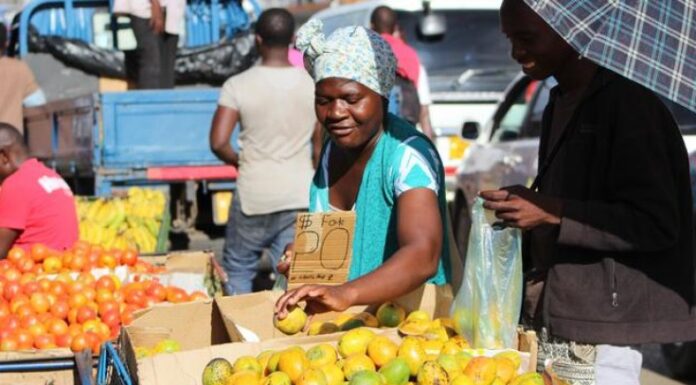
By Staff Reporter
Harare – The Zimbabwean government has imposed a ban on night vending and the sale of second-hand clothes within Harare’s Central Business District (CBD).
This measure comes in response to a severe sanitation crisis attributed to vendors operating without proper restroom facilities.
Local Government and Public Works Minister Daniel Garwe addressed the issue during his meeting with Harare Councillors at Town House today.
He highlighted the overwhelming cleanliness challenges faced in Harare, stating that the city has been plagued by the smell of urine and visible human waste, primarily left by informal traders who operate late into the night.
“If you walk through the city, there’s a strong smell of urine everywhere, and you’re likely to step in human feces,” Minister Garwe said.
“City workers are scrubbing feces off pavements as early as 3 a.m. This situation cannot continue.”
Minister Garwe pointed out that many vendors, particularly those selling clothes and second-hand items at night, lack access to proper restroom facilities. As a result, they often relieve themselves against building walls and in alleys, creating a serious health hazard in Harare.
To address this sanitation crisis, the government has banned both the importation and sale of second-hand clothes, as well as all forms of street and night vending in the CBD.
The Minister has instructed the City of Harare to begin enforcing this ban immediately in collaboration with law enforcement agencies.
“The time to act is now,” he declared.
“We must address the root of the problem: vendors without toilets are causing significant public health issues.”
While expressing strong support for removing vendors from the city, Minister Garwe urged local authorities to avoid using force or treating vendors inhumanely, especially the elderly.
“As we remove them, we must remember that some are elderly individuals. They should not be chased away in a barbaric manner. Municipal officers are expected to communicate with them respectfully,” he emphasized.
Garwe encouraged councils to implement these measures firmly yet compassionately, asserting that restoring Harare to its former glory requires more than just speeches.
“It is essential to recognize that the journey toward Vision 2030 demands tangible action and a commitment to excellence, not just good intentions,” he said.
“We must work diligently; the sun will not shine on our efforts unless we make it possible for it to do so.”
This ban is anticipated to provoke backlash from informal traders, many of whom depend on vending for their livelihoods amid the ongoing economic crisis.







